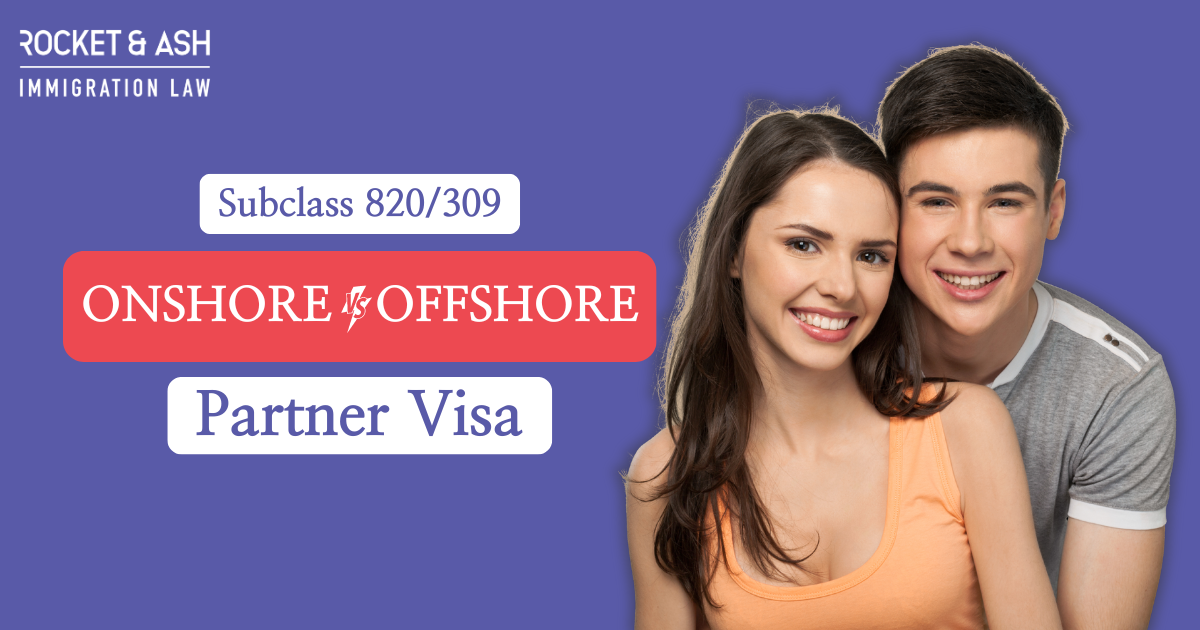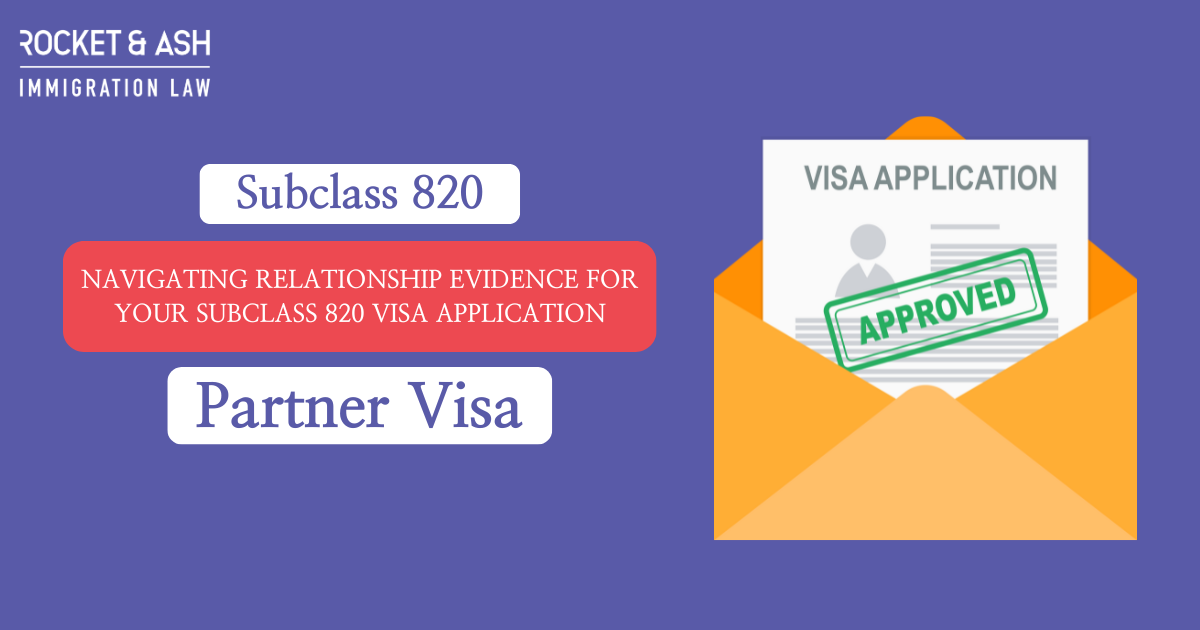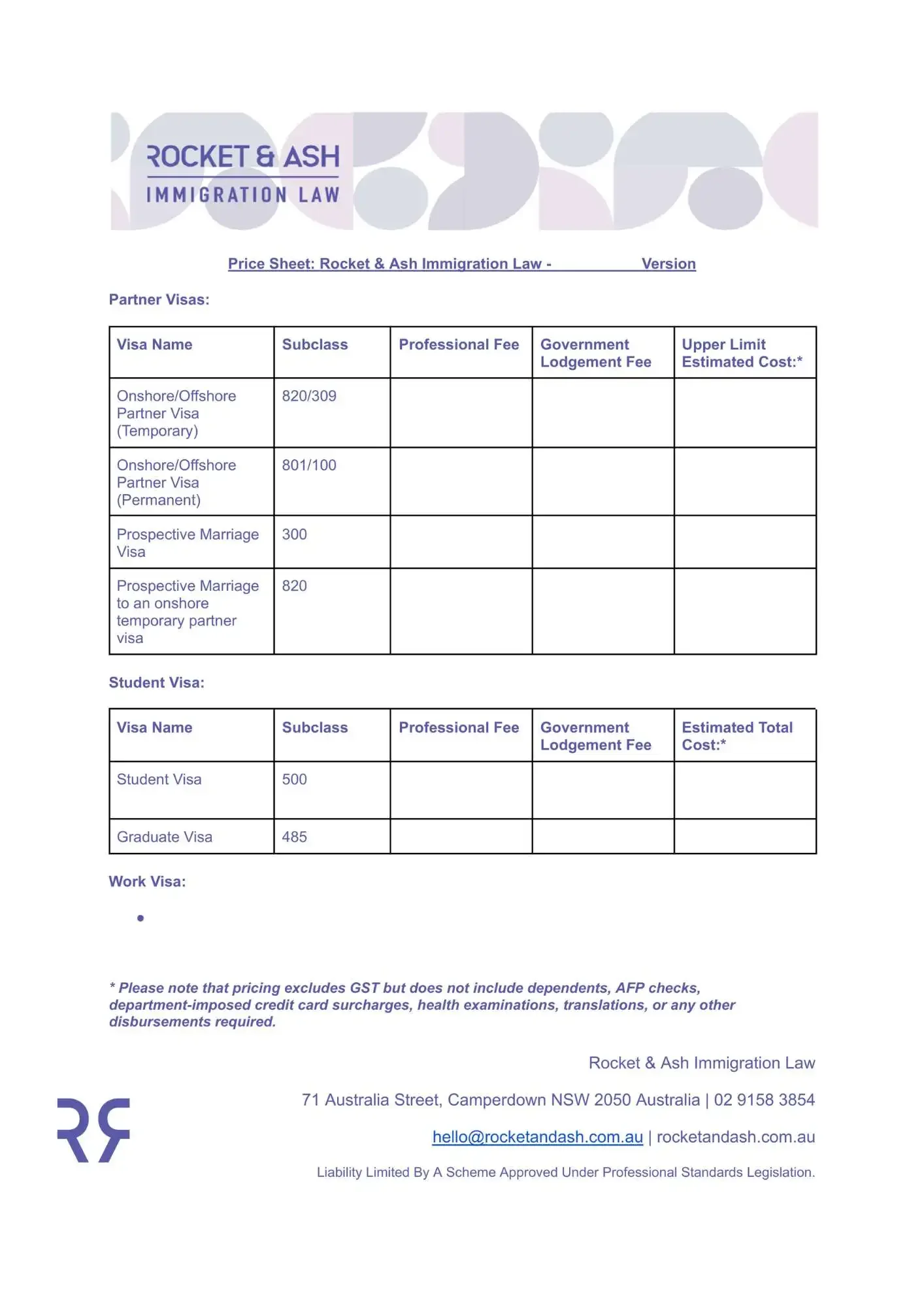Understanding the role of a sponsor in securing the Temporary Skills Shortage Visa, or Subclass 482, is critical to navigating the maze of visa applications. My name is Ines, and I’m the principal solicitor at Rocket & Ash Immigration Law. I’ve personally been practicing Immigration Law exclusively for nearly 14 years and have assisted hundreds of employers in sponsoring their employees under a work visa (Subclass 482)
I’ve distilled the key points for employers and potential employees. We emphasise the role that sponsors play in the process.
Sponsor's Responsibilities
When attempting to secure a Subclass 482, the sponsor (An employer) is responsible for a number of important responsibilities. The journey starts with the approval of a standard business sponsorship, which allows them to nominate overseas workers.
1. Business Sponsorship Approval - The first obstacle for employers is to obtain approval as a sponsor. It is important to demonstrate that the business is legally and actively operating in Australia.
2. Nominating a Job: After being approved, sponsors are required to nominate an actual job on the Skilled Occupation List which is in line with their needs. The sponsor must prove this need by providing evidence, such as market salary rates, financial status of the business, or the nature of employment contract.
3. Fair Work Practices: The terms and conditions offered to an Australian worker in a similar position must be no less favourable. It is important to ensure that the salary, working conditions, and other employment benefits are not less favourable than those offered to Australian workers in similar positions.
4. Apply for the Subclass 482 Nomination and Visa: The employer, via their immigration lawyer or agent, is to apply for both the nomination and visa.
Legal and Ethical obligations
Sponsors are required to balance a number of ethical and legal obligations. They must strike a balance between the need to fill in a skills gap and the obligation to adhere to fair work practices.
1. Compliance with Immigration Laws. Employers are required to ensure their actions comply with immigration laws. This includes maintaining records, supplying accurate information to Department of Home Affairs and cooperating fully with inspectors. Non-compliance may result in sanctions, the cancellation of sponsorship rights and nomination rights and other legal consequences.
The Pathway for Employees
Sponsorship is also important for employees, as it can directly affect their chances of getting a visa.
1. After the sponsor nominates a job, the employer will need to apply for a visa. It involves demonstrating that their qualifications and skills meet the requirements of the position. Family can be included as a dependent on the application.
2. The sponsor's support and compliance are vital, from the visa application to the legal working status. It is important to ensure that the visa holder only works in the designated position and adheres to all visa requirements.
The employer-sponsor must work together with the employee to secure a Subclass 482 Visa. The sponsor manages the application, ensuring compliance and fulfilling legal obligations, while the employee is responsible for meeting the requirements and maintaining their qualifications. When managed well, this partnership not only supports the growth and success of the business, but also the wider Australian economy by filling in skill shortages.
About Rocket & Ash Immigration Law
At Rocket & Ash Immigration Law, we specialise in helping partners, graduates, and professionals navigate the complexities of Australian immigration law. Our expertise in visa applications ensures that you receive tailored advice and support throughout your immigration journey.
If you require assistance with your 482 Work Visa application or have any other immigration-related queries, our experienced team can help.
Please book a free 15-minute discussion with our team if you have further questions.
Written by Ines Jusufspahic, LPN: 5511366
This article does not constitute legal advice or create an attorney-client relationship. For up-to-date information, please consult an immigration professional.



